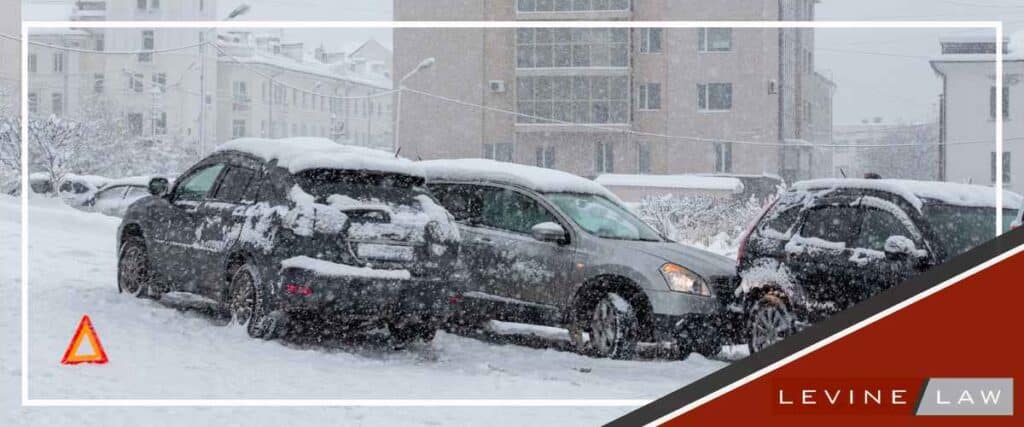Winter transforms Colorado into a picturesque wonderland, but the season’s snow and ice create hazardous conditions for drivers. Icy roads, reduced visibility, and unpredictable weather patterns are all factors that contribute to car accidents during the colder months.
Understanding and navigating these risks is crucial for Colorado residents. When winter driving mishaps occur, seeking guidance from a car accident lawyer in Denver can make all the difference in protecting your rights and securing compensation.
The Winter Driving Threat in Colorado
Colorado’s dramatic weather changes are a recipe for treacherous road conditions. According to the Colorado Department of Transportation (CDOT), nearly 22% of car accidents occur during adverse weather conditions, with snow and ice being significant contributors. The combination of black ice, snow-packed highways, and sudden snow storms can lead to devastating collisions.
Drivers often underestimate the dangers of black ice—a nearly invisible layer that forms on road surfaces. Even seasoned drivers can lose control of their vehicles in an instant. Unfortunately, these accidents frequently result in severe injuries or even fatalities, leaving victims and their families struggling to recover.
Common Causes of Winter Car Accidents
Understanding the common causes of winter car accidents can help drivers take proactive steps to stay safe. Among the most prevalent causes are:
- Excessive Speed for Conditions Winter weather requires slower speeds to maintain control on icy or snowy roads. However, many drivers fail to adjust their speed accordingly, increasing the likelihood of skidding or rear-end collisions. Colorado’s Basic Speed Law (C.R.S. § 42-4-1101) mandates that drivers must operate their vehicles at a reasonable speed for the current conditions, including weather.
- Following Too Closely Tailgating is especially dangerous in winter due to reduced tire traction. Icy roads extend stopping distances significantly, leading to rear-end accidents. Colorado law requires drivers to maintain a safe following distance, particularly in adverse weather, as outlined in C.R.S. § 42-4-1008.
- Failure to Clear Snow and Ice Snow and ice buildup on windshields and roofs can obstruct visibility and create hazards for other drivers. In Colorado, drivers can face fines for failing to clear their vehicles of snow and ice before hitting the road, a critical safety measure that prevents avoidable accidents.
- Improper Tire Maintenance Winter tires are essential for navigating Colorado’s icy terrain. Drivers who neglect tire maintenance or fail to equip their vehicles with snow-rated tires are at greater risk of losing control. Colorado’s traction law requires drivers to use adequate tires or chains during winter storms on designated routes, such as the I-70 corridor.
Legal Consequences and Liability in Winter Accidents
Winter driving accidents often raise questions of liability. While weather is a factor, most accidents are caused by driver negligence. A Denver auto accident attorney can help determine liability by investigating the accident’s circumstances, analyzing road conditions, and assessing whether the at-fault driver violated Colorado traffic laws.
For example, a driver who loses control on an icy patch and collides with another vehicle may still be liable if they were speeding or following too closely. Similarly, a driver who fails to clear snow from their windshield, impairing their vision, could be considered negligent.
Victims of winter car accidents have the right to pursue compensation for medical expenses, lost wages, and pain and suffering. Consulting with a traffic accident lawyer in Colorado ensures that victims understand their legal options and are equipped to hold negligent parties accountable.
Tips to Stay Safe on Winter Roads
Preventing winter car accidents starts with preparation and cautious driving. Here are some essential safety tips:
- Check Weather Reports: Before heading out, stay informed about road and weather conditions. CDOT’s website and mobile app provide real-time updates on road closures and conditions.
- Use Winter Tires: Equip your vehicle with tires designed for snow and ice to improve traction and control.
- Drive Defensively: Slow down, increase following distances, and remain vigilant for sudden changes in road conditions.
- Carry Emergency Supplies: Keep a winter emergency kit in your car, including blankets, a flashlight, water, and a first aid kit.
By taking these precautions, drivers can reduce their risk of accidents and protect themselves and others on the road.
What to Do After a Winter Car Accident
Despite precautions, winter accidents can still happen. Knowing what to do immediately after an accident can protect your rights and strengthen your case:
- Prioritize Safety: If possible, move to a safe location and check for injuries. Then, call 911 to report the accident.
- Document the Scene: Take photos of the accident, road conditions, and vehicle damage.
- Exchange Information: Collect contact and insurance details from all parties involved.
- Seek Medical Attention: Even if injuries seem minor, visit a doctor to ensure they are documented.
- Contact an Attorney: Contact the best car accident law firm in Denver for guidance on pursuing your claim.
Call Levine Law for Assistance
Winter driving in Colorado demands heightened awareness and caution. While snow-covered landscapes may be breathtaking, they pose significant risks for drivers. Understanding these dangers and following best practices can help reduce accidents, but when collisions occur, a car accident lawyer in Denver is your ally in navigating the legal aftermath.
At Levine Law, we are committed to helping accident victims secure the compensation they deserve. If you or a loved one has been injured in a winter car accident, contact us today to speak with a trusted Denver auto accident attorney about your case.
















